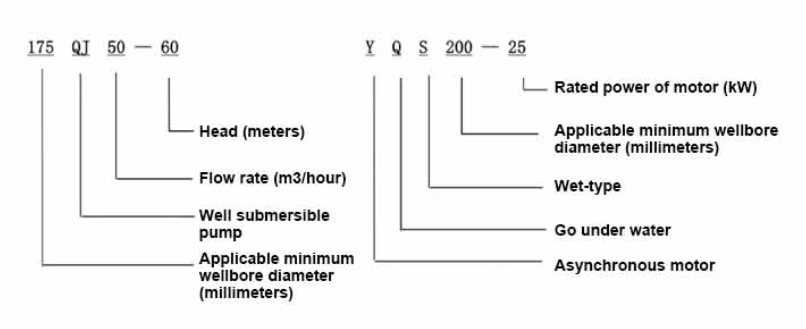Oct . 22, 2024 12:03 Back to list
Submersible DC Pump for Efficient Water Management Solutions
Understanding DC Submersible Pumps An Overview
In the world of water management and distribution, submersible pumps play a crucial role, especially in applications requiring efficient fluid movement in confined spaces. Among various types, DC (Direct Current) submersible pumps have emerged as a popular choice due to their unique benefits and versatility. This article explores the features, advantages, applications, and considerations surrounding DC submersible pumps.
What is a DC Submersible Pump?
A DC submersible pump is a type of electric pump that is designed to be submerged in the fluid it is pumping. Unlike traditional pumps that might rely on alternating current (AC), DC submersible pumps operate using direct current, making them suitable for various applications, particularly where electricity supply might be limited or where battery-powered operations are preferred. These pumps consist of a motor connected to a pump body and are typically used to extract water or other fluids from deep underground sources or low-pressure environments.
Key Features
1. Compact Design DC submersible pumps are usually designed to be compact, which allows them to fit into narrow wells or boreholes. This feature is vital, especially in residential applications where space can be limited. 2. Efficiency Operating on direct current enhances their energy efficiency. Many models can achieve greater efficiency than their AC counterparts, which translates to lower energy costs for extended use.
3. Variable Speed Control DC pumps often come with the added advantage of variable speed functionality. This allows users to adjust the flow rate according to specific requirements, which can be beneficial for various applications.
4. Solar Compatibility Many DC submersible pumps are designed to work seamlessly with solar energy systems. They can be directly powered by solar panels, making them an eco-friendly and cost-effective solution for remote areas where traditional power sources may not be available.
Advantages of DC Submersible Pumps
1. Energy Savings One of the most significant benefits of using DC submersible pumps is the potential for energy savings. They consume less power compared to traditional AC pumps, providing longer operating times when connected to battery systems or renewable energy sources.
2. Reduced Noise DC pumps tend to operate more quietly than their AC counterparts. This feature makes them ideal for residential usage, especially in locations where noise pollution could be a concern.
3. Ease of Use These pumps are typically lightweight and easier to install than traditional pumps, simplifying the setup process for homeowners or businesses.
dc pump submersible

4. Durability Made with corrosion-resistant materials, DC submersible pumps are built to withstand harsh conditions, prolonging their lifespan even when submerged in challenging environments.
Applications
DC submersible pumps have a myriad of applications across various fields. Some common uses include
- Agriculture Farmers use DC submersible pumps for irrigation systems, especially in remote fields where electricity may not be readily available. - Residential Use Homeowners often utilize these pumps for draining flooded basements, emptying pools, or enhancing water features in gardens. - Drinking Water Supply In rural areas, DC submersible pumps are essential for lifting groundwater for domestic use. - Aquaculture These pumps can maintain water circulation in fish farms or aquariums.
Considerations
While DC submersible pumps are highly beneficial, there are important factors to consider before choosing one for your needs
1. Power Source Ensure you have the right power setup, whether through batteries or solar energy, to fully leverage the pump’s potential.
2. Head and Flow Requirements It is crucial to assess the required head (the height water needs to be pumped) and the desired flow rate to select a suitable pump model for specific applications.
3. Maintenance Like any mechanical equipment, regular maintenance is essential to ensure optimal performance and longevity. This includes checking for blockages and ensuring the motor and impeller are in good condition.
Conclusion
DC submersible pumps offer an array of benefits that make them an excellent choice for various applications, particularly in areas where traditional power sources are inconsistent or lacking. Their energy efficiency, compact design, and versatility make them suitable for both residential and industrial purposes. As technology continues to evolve, these pumps are likely to become even more central to efficient water management solutions around the world.
-
Submersible Water Pump: The Efficient 'Power Pioneer' of the Underwater World
NewsJul.01,2025
-
Submersible Pond Pump: The Hidden Guardian of Water Landscape Ecology
NewsJul.01,2025
-
Stainless Well Pump: A Reliable and Durable Pumping Main Force
NewsJul.01,2025
-
Stainless Steel Submersible Pump: An Efficient and Versatile Tool for Underwater Operations
NewsJul.01,2025
-
Deep Well Submersible Pump: An Efficient 'Sucker' of Groundwater Sources
NewsJul.01,2025
-
Deep Water Well Pump: An Efficient 'Sucker' of Groundwater Sources
NewsJul.01,2025
-
 Submersible Water Pump: The Efficient 'Power Pioneer' of the Underwater WorldIn the field of hydraulic equipment, the Submersible Water Pump has become the core equipment for underwater operations and water resource transportation due to its unique design and excellent performance.Detail
Submersible Water Pump: The Efficient 'Power Pioneer' of the Underwater WorldIn the field of hydraulic equipment, the Submersible Water Pump has become the core equipment for underwater operations and water resource transportation due to its unique design and excellent performance.Detail -
 Submersible Pond Pump: The Hidden Guardian of Water Landscape EcologyIn courtyard landscapes, ecological ponds, and even small-scale water conservancy projects, there is a silent yet indispensable equipment - the Submersible Pond Pump.Detail
Submersible Pond Pump: The Hidden Guardian of Water Landscape EcologyIn courtyard landscapes, ecological ponds, and even small-scale water conservancy projects, there is a silent yet indispensable equipment - the Submersible Pond Pump.Detail -
 Stainless Well Pump: A Reliable and Durable Pumping Main ForceIn the field of water resource transportation, Stainless Well Pump has become the core equipment for various pumping scenarios with its excellent performance and reliable quality.Detail
Stainless Well Pump: A Reliable and Durable Pumping Main ForceIn the field of water resource transportation, Stainless Well Pump has become the core equipment for various pumping scenarios with its excellent performance and reliable quality.Detail
